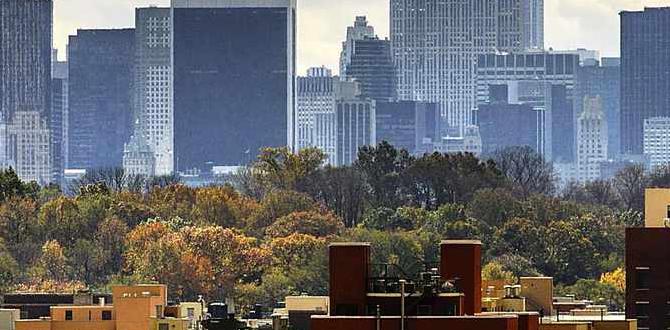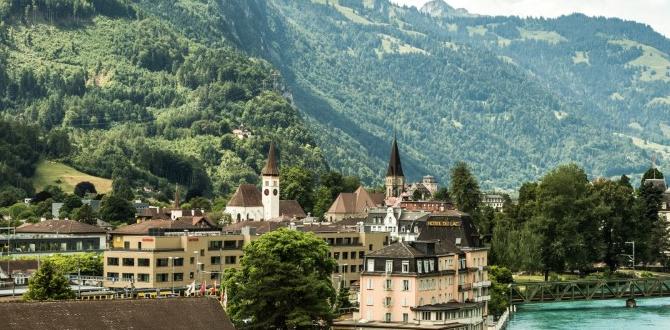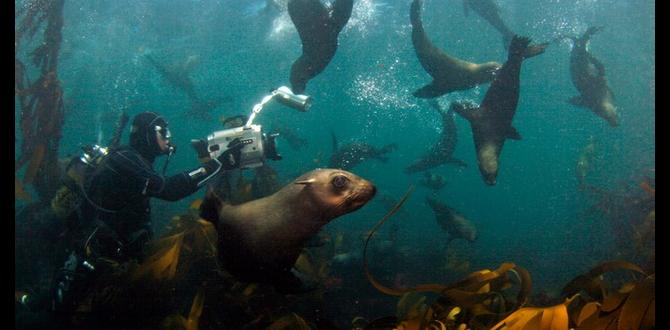To discover the best time to visit Algeria, aim for spring (March to May) or autumn (September to November). These seasons offer pleasant temperatures and fewer crowds, perfect for exploring its diverse landscapes and rich culture comfortably.
Planning a trip to Algeria can feel a bit overwhelming, especially when it comes to picking the perfect time to go. You want sunshine, comfortable weather for exploring, and maybe to avoid the biggest tourist rushes, right? It’s a common question for many travelers, and a little bit of knowledge goes a long way. We’re here to help make that decision easy and stress-free, so you can focus on the amazing adventure ahead. Get ready to discover the ideal window for your Algerian journey!
Algeria Best Time To Visit: Your Essential Guide
Algeria, the largest country in Africa, is a land of breathtaking contrasts. From the rolling sand dunes of the Sahara Desert to the sparkling Mediterranean coast, and the ancient Roman ruins scattered throughout, it offers a unique travel experience. But when is the optimal time to soak it all in without being overwhelmed by extreme weather or peak season crowds? This guide is designed to give you all the essential information you need to plan your perfect visit, ensuring comfort, enjoyment, and memorable moments.
Understanding Algeria’s Climate
Algeria experiences a diverse climate due to its vast size and varied geography. Generally, you can divide the climate into three main zones: the Mediterranean coast, the Atlas Mountains, and the Sahara Desert. Each region has its own distinct weather patterns throughout the year, which significantly impacts the “best time” to visit depending on your itinerary.
Coastal Regions (Algiers, Oran, Annaba)
The northern coastal areas enjoy a Mediterranean climate, characterized by hot, dry summers and mild, wet winters. Think warm sunshine in the summer months and rainy days in winter. The shoulder seasons offer a delightful balance.
Atlas Mountains
Inland, particularly in the mountainous regions, winters can be cold, with snow common at higher elevations. Summers are generally hot and dry. Spring and autumn here offer crisp, clear days perfect for hiking.
The Sahara Desert
The vast Sahara makes up a significant portion of Algeria. Summers are intensely hot, with daytime temperatures soaring well above 40°C (104°F). Winters are mild during the day but can become surprisingly cold at night, dropping close to freezing. This temperature swing is a key factor when deciding when to explore this iconic landscape.
When to Go: The Best Seasons for Your Algerian Adventure
Considering the climate variations, there are two standout periods that offer the most pleasant weather across Algeria for a variety of activities.
Spring (March to May): The Blooming Season
Spring is widely considered one of the best times to visit Algeria. The weather is generally mild and pleasant across most of the country. Coastal areas are warm and sunny, perfect for exploring cities and historical sites. Even the desert begins to warm up, but still remains manageable during the day, with cool, comfortable nights.
- Pros:
- Pleasant temperatures for sightseeing and outdoor activities.
- The landscape, especially in the north, can be quite green and beautiful.
- Desert excursions are comfortable, avoiding extreme heat.
- Fewer crowds compared to the peak summer months.
- Cons:
- Can still experience some rain, especially in early spring in the north.
- Popular destinations might start to get busier towards the end of May.
Autumn (September to November): The Harvest Season
Autumn rivals spring as the ideal travel window. As the scorching summer heat subsides, the temperatures become wonderfully comfortable. The Mediterranean coast enjoys lingering warmth, while the desert cools down to create perfect conditions for exploration. This is an excellent time for cultural immersion and enjoying the outdoors.
- Pros:
- Ideal temperatures for exploring both cities and the desert.
- Clear skies and generally dry weather.
- A good time for cultural festivals and experiencing local life.
- Visually stunning, with changing colors in some northern regions.
- Cons:
- Nights can start to get cooler, especially in the desert.
- Popular spots can see an increase in visitors as the weather stabilizes.
When to Avoid: Considerations for Summer and Winter
While Algeria can be visited year-round, certain periods might pose challenges or require more specific planning.
Summer (June to August): The Heat Wave
Summer in Algeria is characterized by intense heat, especially in the interior and the Sahara Desert. Daytime temperatures can regularly exceed 40°C (104°F) and even reach 50°C (122°F) in the hottest desert regions. While coastal areas benefit from sea breezes, it can still be very hot for extensive sightseeing.
- Pros:
- Long daylight hours for exploring.
- Coastal towns offer opportunities for beach activities.
- If you specifically want to experience the desert in extreme heat (though not recommended for most), this is the time.
- Cons:
- Extreme heat can be dangerous and uncomfortable, limiting outdoor activities.
- Higher risk of heatstroke and dehydration.
- Desert travel can be challenging and requires careful planning.
- Peak tourist season means higher prices and larger crowds in popular coastal resorts.
Winter (December to February): The Cooler Months
Winter brings cooler temperatures to Algeria. The north experiences mild, wet weather, with some days being quite chilly and rainy. The Atlas Mountains can see significant snowfall, making them a destination for winter sports enthusiasts. The Sahara Desert, while mild during the day, experiences cold to freezing temperatures at night.
- Pros:
- Fewer tourists overall, offering a more serene travel experience.
- Lower prices for flights and accommodation.
- The Atlas Mountains offer a winter wonderland for those seeking snow.
- Desert days are mild and pleasant for exploring ancient sites.
- Cons:
- Rain and cold can affect outdoor plans in the north.
- Daylight hours are shorter.
- Desert nights can be extremely cold, requiring significant warm clothing.
- Some tourist facilities might have reduced hours or be closed.
Climate Breakdown: Algeria by Region and Season
To help you pinpoint the exact best time for your desired experience, let’s break down the climate by region through the seasons. This detailed view is crucial for crafting your itinerary. Whether you’re dreaming of Timbuktu-like desert adventures or exploring ancient Roman cities like Timgad, understanding the microclimates is key.
| Region | Spring (Mar-May) | Summer (Jun-Aug) | Autumn (Sep-Nov) | Winter (Dec-Feb) |
|---|---|---|---|---|
| Mediterranean Coast (e.g., Algiers, Oran) |
Mild & pleasant (15-25°C / 59-77°F), occasional light rain. Ideal for city tours. | Hot & sunny (25-35°C / 77-95°F), with sea breezes. Good for beaches. | Warm & sunny (20-28°C / 68-82°F), less humid. Perfect for exploring. | Cool & wet (10-18°C / 50-64°F). Good for indoor activities or cozy cafes. |
| Atlas Mountains (e.g., Djurdjura) |
Crisp & clear (10-20°C / 50-68°F), wildflowers bloom. Great for hiking. | Hot & dry (25-35°C / 77-95°F) at lower altitudes, cooler at higher elevations. | Cool & pleasant (15-25°C / 59-77°F). Mountain trails are accessible. | Cold, often snowy (0-10°C / 32-50°F). Skiing possible in some areas. |
| Sahara Desert (e.g., Tamanrasset, Adrar) |
Warm days (20-30°C / 68-86°F), cool nights (10-15°C / 50-59°F). Perfect for desert trips. | Extremely hot (40-50°C+ / 104-122°F+), very cool nights (20-25°C / 68-77°F). Not recommended for general tourism. | Pleasant days (25-35°C / 77-95°F), cool nights (10-18°C / 50-64°F). Excellent for desert exploration. | Mild days (15-25°C / 59-77°F), frigid nights (0-8°C / 32-46°F). Requires warm gear for evenings. |
Essential Considerations for a Comfortable Trip
Beyond the weather, a few practical tips will ensure your trip to Algeria is as smooth and comfortable as possible. For travelers managing personal care needs, such as adults or children requiring adult diapers or child diapers, planning ahead is key. Ensuring you pack an ample supply of reliable products can significantly reduce stress, especially during long travel days or during explorations in remote areas.
Think about the activities you wish to undertake. If your primary goal is trekking in the Sahara, then the cooler months from October to April are ideal. If you’re keen on exploring Roman ruins like those in Djemila and Timgad and want mild weather for walking, spring and autumn are your best bet. For beach lovers focusing on the Mediterranean coast, summer offers the warmest seas, but spring and autumn provide more comfortable temperatures for sightseeing around coastal cities.
Packing Essentials Based on Season
Your packing list will heavily depend on when you decide to visit. Here’s a general idea:
- For Spring & Autumn:
- Light layers are key.
- A light jacket or sweater for cooler evenings.
- Comfortable walking shoes are a must.
- Sunscreen, sunglasses, and a hat are essential year-round.
- Modest clothing to respect local customs, especially when visiting religious sites or rural areas.
- For Summer:
- Lightweight, breathable clothing made of natural fabrics.
- Sun protection is paramount – wide-brimmed hats, UV-protective sunglasses.
- Plenty of water to stay hydrated.
- Comfortable, open footwear.
- Consider a small portable fan if you are sensitive to heat.
- For Winter:
- Warmer layers, including sweaters, fleece, and a waterproof/windproof outer jacket.
- Thermal base layers can be a lifesaver, especially for desert nights.
- Waterproof shoes or boots.
- A hat, scarf, and gloves are essential for colder regions and desert evenings.
- An umbrella or rain poncho for the northern areas.
Important Travel Tips for Algeria
Algeria is a destination that rewards prepared travelers. Here are some tips to make your journey seamless:
- Visa Requirements: Check the visa regulations well in advance of your travel. You can find information on requirements from the official Ministry of Foreign Affairs of Algeria or your local Algerian embassy.
- Currency: The Algerian Dinar (DZD) is the local currency. ATMs are available in cities, but carrying some cash, especially if venturing to more remote areas, is advisable.
- Language: Arabic and Tamazight are the official languages. French is widely spoken, especially in business and tourism. Learning a few basic Arabic phrases can be very helpful and appreciated by locals.
- Transportation: Intercity buses and trains connect major cities. Car rentals are available, but driving can be challenging. Consider hiring a driver for longer distances or desert tours.
- Safety: Algeria is generally safe for tourists, but it’s always wise to stay aware of your surroundings, especially in busy urban areas. Consult your government’s travel advisories for the most up-to-date information.
- Cultural Etiquette: Dress modestly, particularly outside tourist resorts and cities. It’s polite to ask permission before taking photos of people. Respect local customs and traditions.
- Dealing with the Climate: Stay hydrated, especially in warmer months. Wear appropriate clothing to protect yourself from sun and cold. For those who might need extra security or comfort, particularly during extended travel, discreet and reliable products are available. For instance, brands offering discreet adult diapers can provide peace of mind for adults traveling for long periods.
Can I Visit Algeria in Ramadan?
Visiting Algeria during Ramadan is possible but requires a different approach. Ramadan is the Islamic holy month when observant Muslims fast from dawn till dusk. During this period:
- Timing: Ramadan follows the lunar calendar, so its dates shift each year.
- Eating & Drinking: Eating, drinking, and smoking in public during fasting hours are generally discouraged and may be offensive to locals. Many restaurants and cafes may have limited operating hours or be closed during the day in Muslim areas.
- Lifestyle: The pace of life slows down significantly during the day. Evenings come alive after sunset with families breaking their fast and celebrating.
- Pros: You can experience the unique atmosphere of Ramadan, with special evening markets and vibrant after-sunset gatherings. It can also be a less crowded time in some areas.
- Cons: Daily activities might be restricted due to fasting hours. It’s vital to be respectful and mindful of local customs.
If you choose to visit during Ramadan, aiming for the shoulder seasons (spring or autumn) will still offer more comfortable weather for any activities you can plan around the fasting hours. Be sure to check the specific dates for Ramadan well in advance.
FAQs
What is the cheapest time to visit Algeria?
Generally, the cheapest time to visit Algeria is during the off-peak seasons, which are typically the shoulder months of spring (March-May, excluding Easter holidays) and autumn (September-November), and certainly during the winter months (December-February). You’ll often find lower prices on flights and accommodation during these periods, especially outside of major holidays. However, be mindful of the weather conditions during winter, particularly in the desert, as it can be quite cold.
Is Algeria safe for solo female travelers?
Algeria is generally safe, but like anywhere, it requires common sense and vigilance. Solo female travelers are advised to dress modestly, avoid walking alone late at night in less populated areas, and be aware of their surroundings. It’s also beneficial to travel with a reputable tour operator that can arrange local guides and ensure secure transportation, especially when moving between cities or visiting remote areas.
What is the best time to see the Sahara Desert in Algeria?
The best time to visit the Algerian Sahara Desert for comfortable temperatures is during the cooler months. This includes late autumn (October to November) and winter (December to February) for mild daytime temperatures, and early spring (March to April) when it’s warm but not excessively hot. During these periods, days are pleasant for exploration, and nights, while cool, are manageable with appropriate gear. Summer is extremely hot and generally not recommended for desert tourism.
Do I need to know Arabic to visit Algeria?
You do not necessarily need to know Arabic to visit Algeria, especially if you are sticking to major tourist areas and cities. French is widely spoken and understood, particularly by those in the tourism and hospitality sectors. However, knowing a few basic Arabic phrases (like “hello,” “thank you,” “please”) will be greatly appreciated by locals and can enhance your cultural interactions. English is spoken by some in hotels and tourist information centers, but it’s not widespread.
What should I consider regarding personal care for long journeys?
For extended travel in Algeria, especially if you anticipate long bus journeys, desert treks, or periods where facilities might be basic, planning for personal comfort and care is wise. For individuals who use






